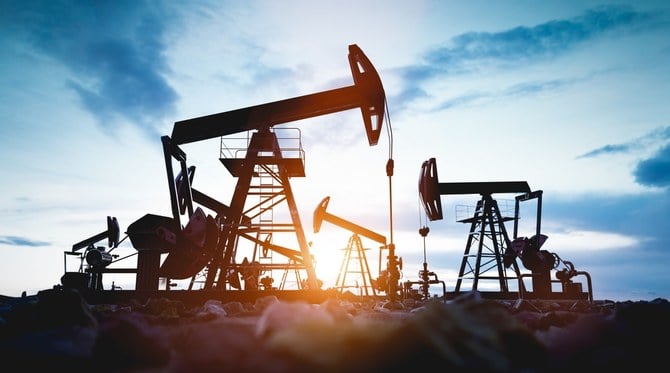Oil prices slid on Wednesday as industry data showed US crude stockpiles rose more than expected and on worries a rebound in COVID-19 cases in top importer China would hurt fuel demand.
Brent crude futures fell 44 cents, or 0.5 percent, to $94.92 a barrel by 0454 GMT, while US West Texas Intermediate crude futures fell 53 cents, or 0.6 percent, to $88.38 a barrel. The benchmarks fell around 3 percent on Tuesday.
Occidental Q3 profit surges on higher oil prices
Occidental Petroleum on Tuesday posted a four-fold increase in third-quarter profit from a year earlier, while receding from the previous quarter as energy prices eased from peaks.
Oil producers are benefiting this year from crude prices that have cooled down in recent months but are still hovering at their highest levels in years in sanctions on Russia and output cuts by the Organization of Petroleum Exporting Countries and its allies, known as OPEC+.
Shares of the Houston-based oil and gas producer, the most recent stock-darling of billionaire investor Warren Buffett, rose 140 percent this year despite little change in production levels.
Occidental used the extra cash to accelerate buybacks, repurchasing a record $1.8 billion in the quarter while also paying the debt. It bought until September $2.6 billion in shares, close to its $3 billion annual target.
Net income in the third quarter was $2.55 billion, or $2.52 a share, a four-fold increase from $628 million, or 65 cents per share, from a year earlier. But profit decreased 29 percent from the $3.6 billion posted in the second quarter.
Occidental’s total average global production was 1.18 million barrels of oil equivalent per day in the third quarter, 10,000 boed above the top end of its guidance. It plans to raise production by about 50,000 boed in the fourth quarter.
Occidental reduced debt to less than $19 billion in the quarter, meeting its short-term target that would enable a potential upgrade to investment grade by rating agencies.
Oman energy minister sees oil prices coming down after winter
Oman’s energy minister Salim Al-Aufi said on Tuesday he saw oil prices coming down from the range of $90 a barrel after the winter season.
“We don’t believe that the current prices are sustainable comfortably,” he told Reuters on the sidelines of the COP27 climate conference in Egypt’s coastal city of Sharm El-Sheikh.
“We believe after the winter season they will go down. We think it will go to a much more comfortable position in the 70s,” he said.
Aufi said Oman set the oil price for its budget at $55 a barrel to create an extra cushion for debt payments but that he did not think prices would go down that much.
“We do have a lot of debt to pay so if we budget at $55, anything above a $55 price will go toward paying the debt,” he said.
Aufi also said the upcoming Dec. 4 meeting of OPEC+ in Vienna would largely be driven by the messaging out of Europe on its economic outlook.
If Europe’s message was that it still expected a recession and higher interest rates, OPEC would again consider the question “do we have oversupply,” he said.
Aufi said he had not seen any data yet and that OPEC+ could move either way, depending on whether the group believed the market was over-supplied.
At its Oct. 5 meeting, the OPEC + agreed on a 2 million barrel per day output cut that triggered a war of words with some in the West, with the US administration calling it “shortsighted.”

